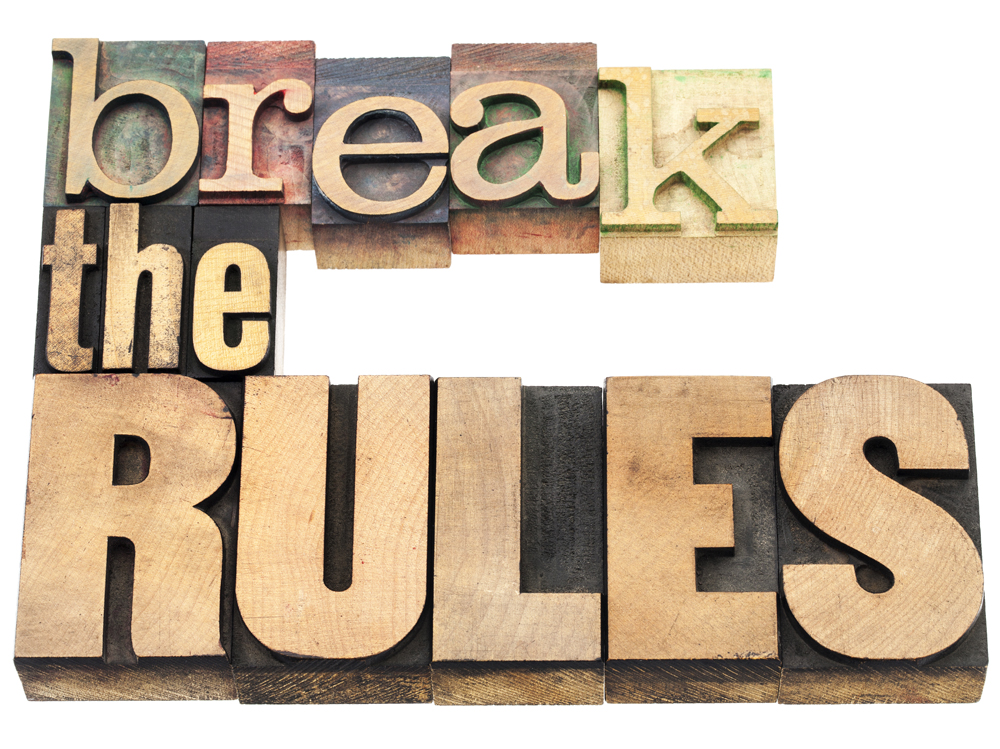If you tell someone that you are a writer, they will no doubt be ready to offer you unsolicited opinions regarding story arcs or character development. If you actually ask for advice, this outpouring of “helpful” tips and suggestions is likely to increase tenfold. Though usually well-meaning, these advice-givers don’t necessarily know what they’re talking about. As we’ve seen in a past Writing Wednesday entry, even the most successful authors aren’t always qualified to make suggestions regarding someone else’s writing process.
Because it is so incredibly easy to find lists filled with other people’s advice, we thought we’d save you the trouble of testing out all these ideas. Here are the five most dangerous pieces of advice offered to writers (that we are suggesting you ignore):
Write Like Nobody’s Reading
Great advice for your personal journal, but not so much for a work that you hope to get published. If you’re writing like nobody’s going to read it, then why are you working so hard to become a professional writer? Yes, it’s important to write what is true to you, but going about it in this “head-in-the-sand” sort of way can lead to sloppy writing and a lack of focus.
Amendment: Write your first draft like nobody will read it, then edit, edit, edit until it’s a clear, meaningful story that other people will be able to follow.
Write Every Day
Many successful authors will tell you that the number-one key to their success is writing every day. If writing is already your day job, then congratulations – you’ve turned your passion into a paying career! However, for most aspiring authors (even many published ones), writing alone isn’t enough to pay the bills. While it’s true that if you want to make it as an author you have to actually write, you also need to feed yourself, maintain social connections and perhaps even look after a family.
Amendment: Write every day, when possible, and never at the expense of your own well-being.
All It Takes is One Book
There’s a reason that “Don’t put all your eggs in one basket” is such a popular idiom: It’s a very applicable, timeless piece of advice. For every Harper Lee, who is still celebrated in the literary community today despite publishing only one novel (To Kill a Mockingbird, 1960), there are countless Arthur Goldens. And while the Memoirs of a Geisha writer may seem content to ride the wave of his hit 1997 novel, getting that book published didn’t exactly turn him into a household name and guarantee him a fruitful writing career.
Amendment: Never stop writing. The key to success is not hitting the talk show circuit to promote your first novel, it’s writing another one. Avoid the one-hit wonder trap by learning from the successes and failures of your first published work, and use that knowledge when crafting a follow-up (when the pressure is truly on).
Read Everything/Don’t Read Anything
There are two popular schools of thought when it comes to allowing outside influence when writing, and they are both equally extreme. So, what’s the better piece of advice? Should you “read everything” that’s ever been published, in hopes that something sparks or inspires you? Or, should you “read nothing” to ensure that nobody else’s ideas cloud your own? We say, read whatever you want. Really – if a piece of advice sounds too extreme, it probably is. It’s impossible to expect you to read all or nothing, especially since we assume that if you’re hoping to make a career out of writing you probably enjoy reading, as well.
Amendment: Read what feels right. If you can’t focus on your own story line because of another book you’re reading, it’s probably best to put it away. Likewise, if you’re feeling that you’re in a creative rut, it may be a good time to put down the pen and paper and lose yourself in someone else’s work for a while.
Follow Advice
There are some guidelines that you have to follow, such as the grammatical rules of your written language and the laws against plagiarism. Pretty much every other piece of advice out there is entirely subjective though. What may work for one person will not necessarily work for you. So, if you’re following a tip that sounds great but doesn’t feel right, it’s probably not the best option. If you mold your writing process or style to what someone else suggests, you’re apt to lose what makes your writing unique and possibly even your passion for writing in the first place.
Amendment: Read what other people suggest but, ultimately, follow your instincts.
About Paperblanks®: At Paperblanks®, we believe that art should have a place in all aspects of life. That’s why we follow the artist’s way in everything we do – creating, crafting and releasing designs we believe have the power to touch people. For more about Paperblanks®, go to our website at paperblanks.com.






